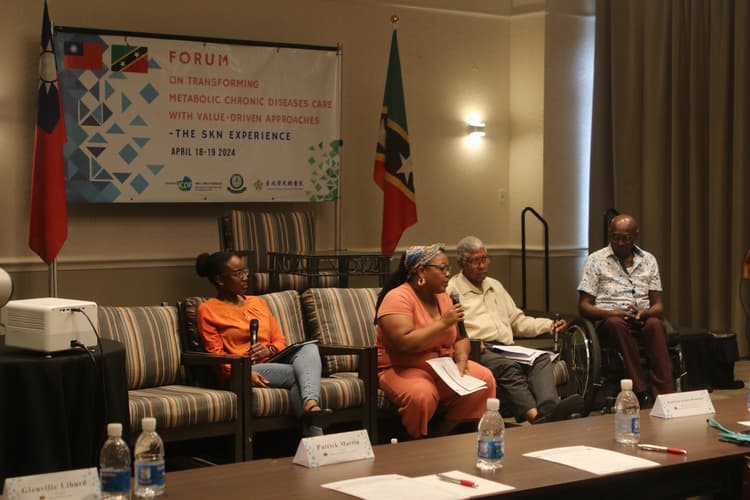You are sweet enough
Barbados Increases their SSB Tax
Barbados Raises their SSB Tax to 20%
In 2015, Barbados was one of the first countries in the world to introduce a tax on sweetened beverages (SBs). This measure was introduced as part of the country’s strategy to tackle the high rate of non-communicable diseases (NCDs). Specifically, this tax aimed to encourage healthier consumption patterns by creating a financial deterrent to the purchase of sweetened beverages which would then nudge consumers to select healthier beverages. Furthermore, an additional benefit of the tax was the projection that it would raise in excess of $BB10 million and thus contribute positively to the economy.
The Health Harms of SSBs
Across the world, sugar-sweetened beverages have been the target of NCD prevention and control strategies and this is because of the growing body of evidence linking SBs to overweight, obesity and the development of NCDs. Research has shown that consuming one serving of an SB per day is linked to a 13% higher risk of developing type 2 diabetes and a 39% increase in non-alcoholic fatty liver disease4. Additionally, frequent consumption is associated with a 9% increase in cardiovascular disease risk and a two-fold increased risk of developing gout, and finally, some studies have linked the overconsumption of SBs to an increased risk of developing some cancers4.
The Impact of Barbados' SB Tax
In order to protect the public from the health-harms of SBs, the World Health Organisation (WHO), the Pan American Health Organisation (PAHO) and the Caribbean Public Health Agency (CARPHA), recommend that governments implement a range of SBs policies, and this includes a tax of at least 20% on SBs. This rate of tax is being recommended by health authorities because an SB tax needs to be high enough to act as an effective deterrent to the purchase of all SBs and 20% has been found to be sufficiently high enough to ensure a significant reduction in purchases.
At 10%, Barbados’ SSB tax was below the recommended rate and in March 2022, the Prime Minister of Barbados, Hon Mia Mottley announced that from 1st April 2022 the SB tax will be raised to 20%. This was in recognition of the fact that more could be achieved with respect to promoting healthier drinking habits if the tax rate was in line with best practices.
Despite the low rate of tax in Barbados, research has shown some positive outcomes with regard to consumer behaviour. For example, since the introduction of the tax, there has been a 4% decrease in the sales of SBs and a 3.6% decrease in the purchase of carbonated SBs1. Additionally, there was a 5.2% increase in non-SBs sales and a 7.5% increase in bottled water sales1. There was some evidence of consumers switching to cheaper SBs; transitioning to the higher rate of 20% could tackle this issue.
Recently, in October 2018, another Caribbean country, Bermuda, joined Barbados and introduced a 50% tax on sugary soft drinks, candies and pure-sugar imports. The tax was then increased to 75% in 2019 and was expanded to include food products with cocoa.
In a study conducted by Imperial College, 48% of Bermudians reported consuming fewer taxed products and the revenue raised between 1st October 2018 and 1st December 2019 was $5.4M2,3. This revenue was used for health and wellness initiatives such as exercise promotion, free health screening and subsidising fruits and vegetables2,3.
Conclusion
The increase in Barbados’ SB tax is a good step towards transforming consumer behaviour and promoting healthier drinking habits. It is anticipated that the increase in taxation will lead to a further reduction in the public’s SB consumption thereby reducing the public’s exposure to added sugar leading to a reduction in calorie intake and a reduction in NCD risk.
Since 2015, more countries around the world have introduced SB taxation as part of their NCD prevention and control strategies with over 50 countries now utilising this fiscal measure. This demonstrates the concern that countries have with the consumption of SBs and pairing this policy with other policies such as front-of-package warning labels and restricting the sale and marketing of SBs will contribute to eliminating a key risk factor for NCDs and thus improve the health of the public.
Over here in St. Kitts and Nevis, the Ministry of Health is working towards the implementation of their SB policy this year. We are in support of the Ministry’s policy and encourage Cabinet to approve this policy when it is presented to them so that concrete and effective steps can be taken to promote healthier drinking habits.
Reference
- Alvarado, M., Unwin, N., Sharp, S.J. et al.Assessing the impact of the Barbados sugar-sweetened beverage tax on beverage sales: an observational study. Int J Behav Nutr Phys Act 16, 13 (2019). https://doi.org/10.1186/s12966-019-0776-7
- Bell, J. Sugar Tax Raises $5.4M. The Royal Gazette. 3rd February 2020.
- Kelsey K CASE, Elisa PINEDA, Jack OLNEY et al. The ‘sugar tax’ in Bermuda: a qualitative study of general population and key stakeholder perceptions, 21 April 2022, PREPRINT (Version 1) available at Research Square [https://doi.org/10.21203/rs.3.rs-1487094/v1]
- Malik, V.S., Hu, F.B. The role of sugar-sweetened beverages in the global epidemics of obesity and chronic diseases. Nat Rev Endocrinol18, 205–218 (2022). https://doi.org/10.1038/s41574-021-00627-6
- Sinckler C. Presentation of the Financial Statement and Budgetary Proposals 2015 [Internet]. 2015 Jun [cited 2017 May 25]. Available from: https://www.barbadosparliament.com/uploads/document/d1efb84aac6a7abe4c6c0efcf8ceedd2.pdf
Share With :



